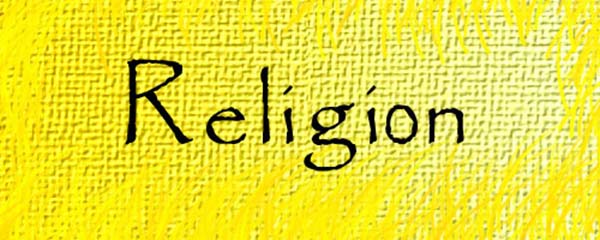For the religious people, religion is the most prominent legacy handed over from the past generation to the present. Religious beliefs and practices remain purer than cultural elements, traditional lifestyles and many other walks of life. Although, changes have taken place, still there are many who fight tooth and nail against modern changes and influences to protect their religious convictions. To study about the past, religious literatures are more reliable sources to be referred to.
“Eternal order”, which is a philosophical term, refers to timeless and metaphysical issues which transcend the times and ages and entails religion. On the contrary, “temporal order” is referred to worldly elements which are restricted within the times.
A question rises that hasn’t the modern age brought about many changes in the religious ideology of the people? Of course, the passage of time has caused tremendous changes in the religious world views. In other words, many schools of thought have made the followers of certain religions to look at the religious issues from various perspectives which are mostly unlike the past.
Moreover, the present generation mostly show great tendency towards secularism. A short and perfunctory introduction of secularism is the separation of “church” from the “state.” It merits mentioning that on the one hand there is secular motive which means to perform righteous actions without religious motives behind but due to the advantages or disadvantages it holds. For example, you avoid harming people for the disorder it will cause in the society not due to religious order. On the other hand, there is secular mentality which neither judges all the worldly and natural phenomena on the basis of religion nor attributes them to metaphysics rather they are judged through knowledge and rationality. In other words, the people of our age rely on their own knees to stand not on metaphysics. Hence, the separation of church from the state is only one of the fruits born on the tree of secularism.
It is worthy of mention that secularism is not the sworn enemy of religion which is largely construed this way, however, it is competing religion and has replaced it in some societies. Holyoake invented the term "secularism" to describe his views of promoting a social order separate from religion, without actively dismissing or criticizing religious belief. An agnostic himself, Holyoake argued that "Secularism is not an argument against Christianity; it is one independent of it. It does not question the pretensions of Christianity; it advances others. Secularism does not say there is no light or guidance elsewhere, but maintains that there is light and guidance in secular truth, whose conditions and sanctions exist independently, and act forever. Secular knowledge is manifestly that kind of knowledge which is founded in this life, which relates to the conduct of this life, conduces to the welfare of this life, and is capable of being tested by the experience of this life."
Modernity has not changed the societies only to the secular but also to the radicals. Despite, secular changes that has impacted the men of our age, we can also see fundamental ideology which fights modernity and secularism to the death. It is only because they intend to protect their religious convictions from erosion and bombardments of irreligious schools of thought. Hence, I can say that religion is the purer element which has survived the risk of a metamorphosis in the heart of modernity.
Whenever one hears about modernity and new world, his/her minds suddenly jumps to the mechanical and technological changes. Of course, it is one and the most tangible of changes that have occurred, however, it is not the only change to mark the difference between the past and the present. For example, if only the instruments have changed the world for the modern people, then don’t you think that the animals also live in the new world?
The second difference is the purpose of life which has been altered for the people of our age. Of course, with the technological changes the trend of our life has also been changed automatically. In other words, the technological instruments have transferred various cultural and societal changes within them. Such changes have also altered the goal of our life. For instance, nowadays many people think to be comforted and just enjoy their moments. They have gained new amusements to be entertained and pass their times with the most pleasure. Currently, the purpose of life is preached as: to eat more, spend more, enjoy more, buy more, wear the best clothing, etc.
The outlooks of the past philosophers and thinkers towards natures are also in conflict with the today’s thinkers. In the past, they were only the onlookers who were just theorizing and interpreting about the world and the nature. But, their role has been changed. In other words, today the knowledgeable personalities manipulate the world and nature and act as players rather than onlookers. Today, people endeavor to change the world in their favor and make advantages from the nature. In short, the “instrumental reason” is seeking for free rider.
In the study of knowledge, there are two contradictory schools of thoughts. One of them is based on epistemological rupture which argues that when people enter a new age, it is the same as entering a new continent which has its own axioms or cultural ideals. The other is based on epistemological continuity which contradicts that first one denying a complete disconnection and rupture. I believe that epistemological continuity exists and the past and the present generations still have many things in common and religious beliefs are one of them. Indeed, no society can live empty of religion and it is the lifeblood of the societies which hands over from generation to generation transcending the limitations of the time and history.

